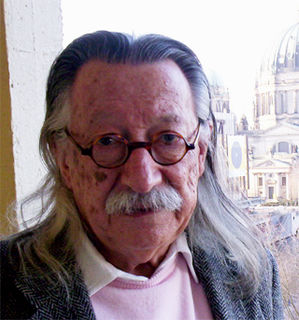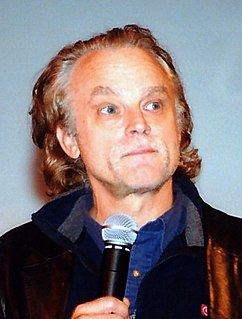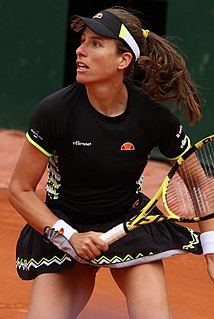A Quote by Patti LuPone
The only thing we are as actors are messengers. That's all we are. Correct? We are delivering the playwright's intention through the concept of the director. And I come on stage; if I feel confident in the role, then I give it away.
Related Quotes
I think that what's important as a director is to give your actors the feeling that they're protected, the feeling of confidence, the feeling that if they make mistakes, then as a director, you'll know how to help them. If you're able to convey that, then the actors will give you wonderful performances. As well as the author, you have to write scenes that give the actors the opportunity to show what they're capable of.
You can't create chemistry. In fact, the chemistry between two actors is for people to see, sense, and judge. The only thing we can do as actors is to come on board individually because we feel the same kind of passion for a script and for a director to cast us because he feels that, as actors, we'll do justice to that part.
Finally, I was called for "The Office" and I was really lucky, because a lot of the shows that I went out for I would work my way up from, like, an audition with the casting director to the director to the producers to the studio, I'd go through seven auditions, and then they'd give the role to a famous actress.
One of the good thing about theater in the states, is that the playwright we do have a say, especially in the beginning, when the play is being discussed around the table. We talk about the play, and the actors listen, and there have been cases, you disagree on something... I mean, actors don't usually tell you what they're going to do, they do it. Of course, you try to speak with the director and say, "Is there any way you can bring this actor to do something different?" You try as much as you can, but then, you also have to be open to interpretation.
The casting is the most important thing. If you cast a picture really well a lot of things take care of themselves. You get actors that like to give a lot to the role and who appreciate the role on the same level that you do. If you miscast it, you're working an uphill battle a little bit and maybe you can come out okay but you can't always come out great.
I'm the type of actor that believes the director has to be in charge. I've been on sets where the actor's ego was the most important thing, and with a director that messes it up. But I don't like a dictator, I want it to be collaborative - the best idea wins. If I feel respected, and I'm going to give that back. If a director wants to try something, cool, I'll give it back. I also feel like they cast me for a reason, so I'm going to make my mark on it... let me do my thing.
I think that as a playwright, if I detail that environment, then I'm taking away something from them [designers]. I'm taking away their creativity and their ability to have input themselves, not just to follow what the playwright has written. So I do a minimum set description and let the designers create within that.
I guess I say this for younger actors out there: you have to be brave, and you have to be ready to fail, and that's the only way you can be unique. So when a director is confident enough in what they're doing, and they allow their actors to be brave and bring in stuff, the more likely it's going to work out okay.




































